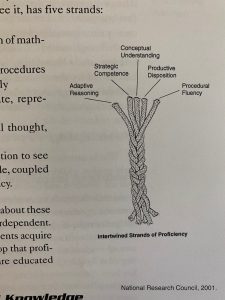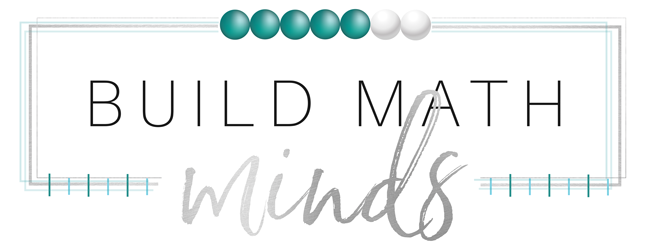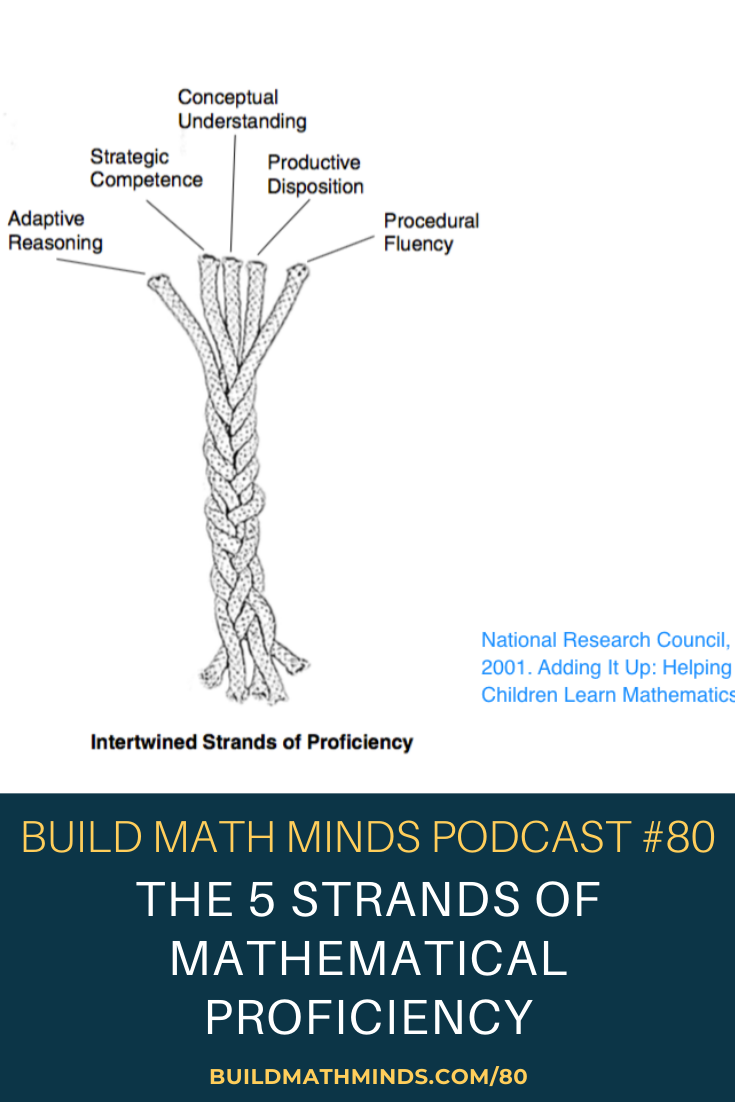Resources mentioned in this episode:
Adding it Up: Helping Children Learn Mathematics
Become a member of the Build Math Minds PD site
Welcome fellow Recovering Traditionalists to Episode 80. Today we are taking a look at The 5 Strands of Mathematical Proficiency.
It’s the time of year that educators start thinking and worrying about the end of the year tests. Yes those are still a ways off but we start to wonder if we are going to have time to prepare students enough with the time we have left.
We all know that those assessments aren’t always a true reflection of our students’ learning but this year especially.
Here in 2021, we are all waiting and hoping for the higher ups to realize that this year is not a year to give our students the standard state assessments. Whether or not that happens, as educators we do still wonder if our students are proficient.
But what does proficient in math really mean? Is it their score on that state assessment?? I think not. However, those state assessments give an easy way to score or grade our students and compare them to a predetermined baseline. But just because something is easy doesn’t mean it’s the right thing to do.
I personally love the description of mathematical proficiency put forth in the book Adding it Up: Helping Children Learn Mathematics. On page 5 of the book they show a picture of the 5 strands of mathematical proficiency.

But for this podcast imagine 5 pieces of yarn braided together. The authors describe it as such:
“Mathematical proficiency, as we see it, has five strands:
- Conceptual understanding – comprehension of mathematical concepts, operations, and relations
- Procedural fluency – skill in carrying out procedures flexibly, accurately, efficiently, and appropriately
- Strategic competence – ability to formulate, represent, and solve mathematical problems
- Adaptive reasoning – capacity for logical thought, reflection, explanation, and justification
- Productive disposition – habitual inclination to see mathematics as sensible, useful, and worthwhile, coupled with a belief in diligence and one’s own efficacy.
The most important observation we make about these five strands is that they are interwoven and interdependent. This observation has implications for how students acquire mathematical proficiency, how teachers develop that proficiency in their students, and how teachers are educated to achieve that goal.”
And so as you are starting to worry about if your students are mathematically proficient this year, I want to encourage you to keep these 5 things in mind. Yes they are a lot harder to quantify than the score a kid gets on a state assessment, but they are so much more meaningful.
If you’d like to learn more about the 5 strands of mathematical proficiency and so much more about how to help children learn mathematics, I highly recommend you get the book Adding It Up. It is one of those books that I’m constantly referencing, so much so that the cover is starting to come off my copy.
Subscribe and Review in iTunes
Hey, are you subscribed to the Build Math Minds Podcast, yet? If you’re not, make sure to do that today because I don’t want you to miss any episodes! Click here to subscribe to the podcast in iTunes.
While you’re there, don’t forget to leave a review on iTunes too. I would love to know your thoughts and how we can make sure that we give you content that you will really enjoy.
To leave a review, head over to iTunes and click on “Ratings and Reviews” and “Write a Review.” I can’t wait to hear your thoughts about the podcast.




